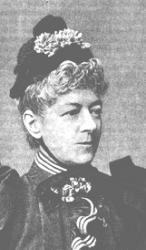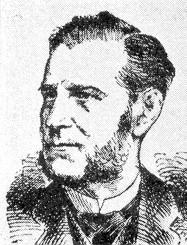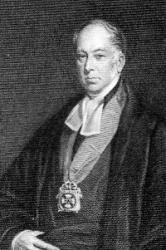Planning worship?
Check out our sister site, ZeteoSearch.org,
for 20+ additional resources related to your search.
- |
User Links
Person Results
‹ Return to hymnal





Export as CSV
Sarah Doudney

1841 - 1926 Person Name: S. Doudney Hymnal Number: 95 Author of "For all Thy care we bless Thee" in Songs of Worship Doudney, Sarah, daughter of Mr. George E. Doudney, of Cosham, Hants, was born near Portsmouth, but removed into a remote village in Hampshire at an early age. Her first efforts in literature were made when she was quite young, her poem, "The Lessons of the Water-Mill," a popular song, especially in America, having been written when she was only fifteen. Known mainly to the reading public through her stories, A Woman's Glory, Stepping Stones, and others, and through her contributions to the Sunday Magazine, Good Words, and other serials, her works, including fiction, and sacred and secular poems, have been widely read and appreciated. Her sacred poems are the least numerous of her writings. Some of these, as, "The Master hath come, and He calls us to follow," and "Saviour, now the day is ending," for use at the close of Evening Service, and of more than usual merit, create the desire for more of a like kind. Greater use, however, may be made of what she has written than has been done. By being buried in magazine literature, her hymns are somewhat difficult to trace. Her Psalms of Life was published by Houlston in 1871.
In the Sunday School Union Songs of Gladness, 1871, the following were given;—
1. He hath gone into His garden. The Vineyard of the Lord.
2. In Thy holy garden ground. The Vineyard of the Lord.
3. Land of peace, and love, and brightness. Heaven.
4. Saviour, now the day is ending. Sunday Evening.
5. The Master hath come, and He calls us to follow. Jesus and Mary of Bethany.
6. We praise our Lord to-day. Sunday.
7. We sing a loving Jesus. Praise of Jesus.
Of these, Nos. 1, 2, 3, are in her Psalms of Life, 1871, and all have passed from the Songs of Gladness into other collections.
Her:—
8. Room for the wanderer, room. Christ's Invitation. is in W. B. Stevenson's School Hymnal, 1880.
-- John Julian, Dictionary of Hymnology (1907)
==================
Doudney, Sarah, p. 307, i. Other hymns in common use:—
1. For all Thy care we bless Thee. Morning.
2. Lord of the golden harvest. Harvest.
3. Now the solemn shadows darken. Evening.
Nos. 1, 2, are from Miss Doudney's Psalms of Life, 1871, and No. 3 is in Mrs. Brock's Children's Hymn Book, 1881.
--John Julian, Dictionary of Hymnology, Appendix, Part II (1907)
Sarah Doudney
William Russell
1777 - 1813 Person Name: W. Russell Hymnal Number: 60a Composer of "TE DEUM" in Songs of Worship
William Russell
Henry Hiles

1826 - 1904 Person Name: H. Hiles Hymnal Number: 23 Composer of "ST. LEONARD" in Songs of Worship Born: December 31, 1826, Shrewsbury, England.
Died: October 20, 1904, Worthing, England.
Hiles was educated at Oxford (BMus 1862, DMus 1867). He played the organ at Shrewsbury, as his brother’s deputy (1846); Bishopwearmouth (1847); St. Michael’s, Wood Street (1859); the Blind Asylum, Manchester (1859); Bowden (1861); and St. Paul’s, Manchester (1863-67). He lectured in harmony and composition at Owen’s College in Manchester (1867) and Victoria University (1879), and was Professor at the Manchester College of Music (1893). He also conducted musical societies in Lancashire and Yorkshire, and owned and edited the Quarterly Music Review (1885-88). He retired in 1904, moving to Pinner, near Harrow. His works include:
Twelve Tunes to Original or Favourite Hymns, 1867
Harmony of Sounds, three editions: 1871, 1872, 1879
Wesley Tune Book, 1872 (editor)
Grammar of Music, 1879
First Lessons in Singing (Manchester: Hime & Addison, 1881)
Part Writing or Modern Counterpoint (Novello: 1884)
Harmony or Counterpoint, 1889
Harmony, Choral or Counterpun
--www.hymntime.com/tch/
Henry Hiles
John Kempthorne
1775 - 1838 Person Name: J. Kempthorne Hymnal Number: 66 Author of "Praise the Lord! Ye heav'ns adore Him" in Songs of Worship Born: June 24, 1775, Plymouth, England.
Died: November 6, 1838, Gloucester, England.
Kempthorne, John, B.D., s. of Admiral Kempthorne, was born at Plymouth, June 24, 1775, and educated at St. John's, Cambridge (B.A. 1796, B.D. 1807), of which he subsequently became a Fellow. On taking Holy Orders, he became Vicar of Northleach, Gloucestershire, in 1816; Vicar of Wedmore, Somersetshire, 1827, and the same year Rector of St. Michael's, and Chaplain of St. Mary de Grace, Gloucester. He was also a Prebendary in Lichfield Cathedral from 1826, and sometime Examining Chaplain to the Bishop of that diocese. He died at Gloucester, Nov. 6, 1838. His hymnological work is:—
Select Portions of Psalms from Various Translations, and Hymns,from Various Authors. The whole Arranged according to the yearly Seasons of the Church of England , with attempts at corrections and improvements. By the Rev. John Kempthorne, B.D.....London. Batchard. 1810.
In this collection there are a few hymns of merit, as ”Forgive, O Lord, our wanderings past," "Great God, to Thee our songs we raise," and "Praise the Lord, ye heavens adore Him," which are usually ascribed, on D. Sedgwick's authority, to J. Kempthorne. These hymns, however, are not by Kempthorne, but were taken by him for his collection from the Foundling Hospital Psalms & Hymns, 1796 and 1801-9; and there is no evidence whatever that he had anything to do with that hymn-book. As that book is frequently quoted by hymnologists, we append the title-page of the 1801 ed., which is a reprint of that of 1797:—
Psalms, Hymns, and Anthems; sung in the Chapel of the Hospital for the Maintenance and Education of Exposed and Deserted Young Children. London, Printed in the Year M.DCCC.I. At the end of some copies of this edition there is pasted in a four-paged sheet of hymns which include, with others, "Praise the Lord, ye heavens, adore Him (q.v.)
In the first edition of his own Selection of Portion of Psalms, &c, 1810, Kempthorne did not in any way indicate his own hymns, but in the 2nd ed. of 1813 (which is a reprint of the 1st ed. with an Appendix of 11 hymns) he says in his Preface:—
“For Hymn 140 and Hymn, p. 267. Appendix; for almost all of Ps. 42, p. 197; Ps. 51, p. 57 and 61; Ps. 84, p. 195; Ps. 86, p. 134; Ps. 115, p. 49; Hymn 127 ; and for a considerable part of Ps. 22, p. 64; Ps. 122, p. 103; Ps. 133, p. 141; Ps. 139, p. 38; Hymns 20, 43, 54, 81, 97, 101, 118, and several others, the Editor is responsible, and acknowledges his obligations to some kind friends."
Of these hymns and psalm versions, which Kempthorne claims as his own, only one or two are in common use.
--John Julian, Dictionary of Hymnology (1907)
John Kempthorne
J. H. Cornell
1828 - 1894 Hymnal Number: 246 Composer of "[I think, when I read that sweet story of old]" in Songs of Worship An organist for St. Paul’s Chapel, Trinity Church, Cornell compiled the Congregational Tune Book in 1872.
--www.hymntime.com/tch/
J. H. Cornell
Frederick Westlake
1840 - 1898 Person Name: F. Westlake Hymnal Number: 232 Composer of "ST. URSULA" in Songs of Worship Westlake, Frederick; b. Feb. 25, 1840, Romsey, Hampshire; d. Feb. 12, 1898, London; English pianist and compose
Frederick Westlake
Richard Whately

1787 - 1863 Person Name: R. Whateley Hymnal Number: 22 Author of "God, that madest earth and heaven" in Songs of Worship Whately, Richard, D.D., born in London, Feb. 1, 1787; educated at Oriel College, Oxford; Bampton Lecturer, 1822; Principal of St. Alban's Hall, Oxford, 1825; and Archbishop of Dublin, 1831. He died in Dublin, Oct. 8, 1863. His association with hynmody is very slight. In 1860 he published his Lectures on Prayer, in which were several translations of German hymns by his eldest daughter, Miss Emma Jane Whately. Dean Dickinson, from whom we have received this information, also says that the Archbishop's hymn "Thou to Whom all power is given" (Lent), was written circa 1830. It was first published in the 1st edition of the Irish Church Hymnal, 1855. The Archbishop's youngest daughter, Blanche, was also a writer of hymns.
--John Julian, Dictionary of Hymnology, Appendix, Part II (1907)
Richard Whately
John Downing Farrer
1829 - 1919 Person Name: J. D. Farrer Hymnal Number: 121 Composer of "NEW CALABAR" in Songs of Worship Born: Circa February 1829, Lowestoft, Suffolk, England.
Died: Circa February 1919, Christchurch District, Hampshire, England.
Farrer and his wife were living in Lowestoft as of 1881, and Farrer was in Bournemouth in 1901.
--www.hymntime.com/tch/
John Downing Farrer
Mary Fawler Maude

1819 - 1913 Person Name: Mrs. M. F. Maude Hymnal Number: 227 Author of "Thine forever! God of love" in Songs of Worship Maude, Mary Fawler, née Hooper, daughter of George Henry Hooper, of Stanmore, Middlesex, was married in 1841 to the late Joseph Maude, some time Vicar of Chirk, near Ruabon, and Hon. Canon of St. Asaph, who died in Feb. 1887. Mrs. Maude's hymns were published in her Twelve Letters on Confirmation, 1848, and in Memorials of Past Years, 1852 (privately printed). Her best known hymn, is "Thine for ever, God of love" (Confirmation). Concerning it Mrs. Maude says: --
"It was written in 1847 for my class in the Girls' Sunday School of St. Thomas, Newport, Isle of Wight, and published in 1848 at the beginning of a little book called ‘Twelve Letters on Confirmation,' by a Sunday School Teacher, and reprinted in the Memorials, 1852."
[S. MSS.]
The original is in 7 stanzas of 4 lines. It is usually abbreviated, and stanzas ii., iii. transposed, as in the Society for Promoting Christian Knowledge Church Hymns, 1871; the Hymnal Companion; Hymns Ancient & Modern, 1875, Thring's Collection, 1882, and most other hymnbooks. As a hymn for Confirmation its use is extensive. The omitted stanzas are:—
"Thine for ever in that day
When the world shall pass away:
When the trumpet note shall sound,
And the nations underground
"Shall the awful summons hear,
Which proclaims the judgment near.
Thine for ever.
'Neath Thy wings Hide and save us,
King of Kings."
-- John Julian, Dictionary of Hymnology (1907)
Mary Fawler Maude
Timothy R. Matthews

1826 - 1910 Person Name: T. R. Matthews Hymnal Number: 81 Composer of "BROMHAM" in Songs of Worship Timothy Richard Matthews MusB United Kingdom 1826-1910. Born at Colmworth, England, son of the Colmworth rector, he attended the Bedford and Gonville Schools and Caius College, Cambridge. In 1853 he became a private tutor to the family of Rev Lord Wriothesley Russell, a canon of St. George’s Chapel, Windsor Castle, where he studied under organist, George Elvey, subsequently a lifelong friend. He married Margaret Mary Thompson, and they had 11 children: Norton, Mary, George, Cecil, Evelyn, Eleanor, Anne, Arthur, Wilfred, Stephen, and John. Matthews served as Curate and Curate-in-Charge of St Mary’s Church, Nottingham (1853-1869). While there, he founded the Nottingham Working Men’s Institute. He became Rector at North Coates, Lincolnshire (1869-1907). He retired in 1907 to live with his eldest son, Norton, at Tetney vicarage. He edited the “North Coates supplemental tune book” and “Village organist”. An author, arranger, and editor, he composed morning and evening services, chants, and responses, earning a reputation for simple but effective hymn tunes, writing 100+. On a request he wrote six tunes for a children’s hymnal in one day. He composed a Christmas carol and a few songs. His sons, Norton, and Arthur, were also known as hymn tune composers. He died at Tetney, Lincolnshire, England.
John Perry
Timothy R. Matthews


 My Starred Hymns
My Starred Hymns


